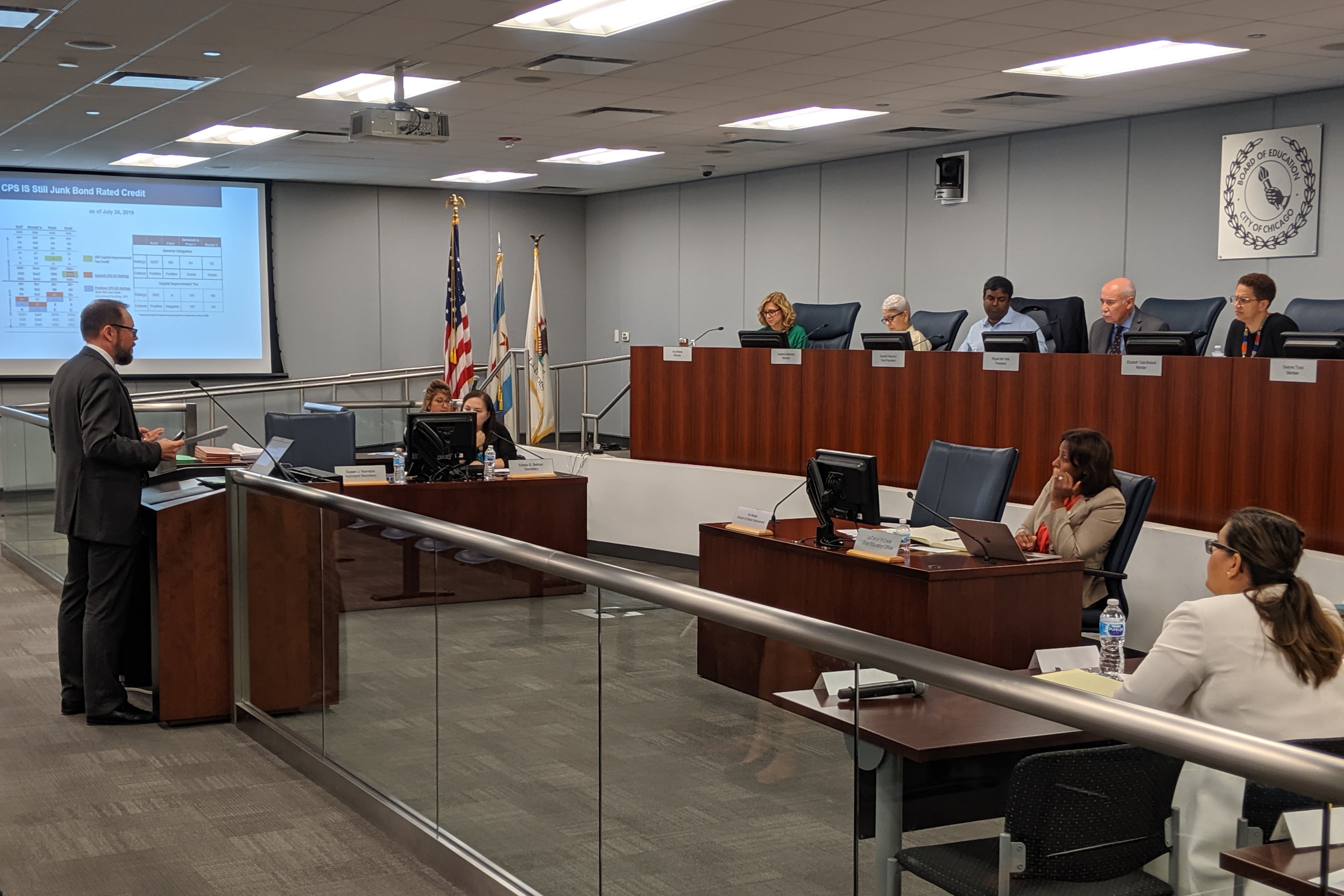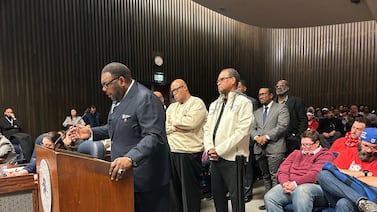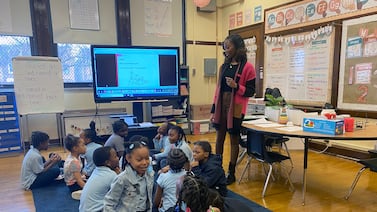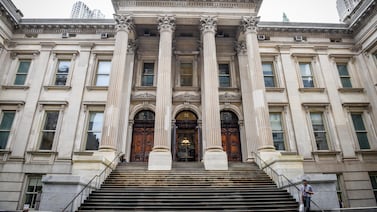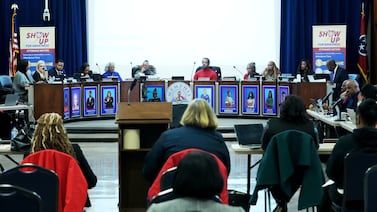Chicago’s future elected school board members will not be compensated for serving, raising questions about whether that will create a barrier for representatives from marginalized communities.
Under a compromise bill passed by the Illinois legislature and signed by Gov. J.B Pritzker in June, Chicago will have a 21-member school board starting with 11 seats appointed by the mayor and 10 elected in 2024. The board will transition to a fully elected school board by 2027, with a second election held in 2026.
While this structure remains intact, a new trailer bill passed during the October veto session specifies that board members will not be paid. The trailer bill also moved up the school closure moratorium, changed how the mayor appoints members, and moved the first election to Nov. 5, 2024, the date of that year’s general election.
A number of key issues remain, including carving out electoral districts and determining whether undocumented citizens can vote for board members and serve on the board.
But the issue of compensation spotlights an ongoing concern for local advocates of the elected school board movement: whether the board will represent working-class families. One of the goals in creating a large, elected school board in Chicago was to give more communities a say in public education matters.
Sen. Robert Martwick, the architect of the Chicago elected school board bill, said he has supported compensation for school board members since he first filed the bill several years ago.
“My bill had a provision to compensate board members as a way of acknowledging that if we truly desire adequate and diverse representation, then we have to get people from marginalized communities,” he said. “We have to remove the roadblocks that prevent them from serving.”
According to Martwick, taking compensation out of previous versions of the bill made it more palatable to some suburban and rural legislators, who argued they had been prevented in the past from paying their school board members because of state law.
More recently, compensation was also a point of conflict between legislators and Chicago Mayor Lori Lightfoot, who opposed the bill for many reasons — and even created her own version. Lightfoot’s office said in a statement that the mayor advocated for board member compensation, but opposed “a provision that would have allowed elected board members to set their own salaries.”
Chicago city council members receive automatic raises set in 2006 and, each year, can vote for or against the pay increase — few often vote against it. State legislators’ salaries are adjusted for inflation each year and members of the general assembly can reject pay increases.
After months of negotiations, in an effort to get the latest bill passed after years of fighting for an elected school board, key sponsors agreed to drop compensation. Martwick said he’ll continue to fight for compensation for board members while he is still in the legislature.
Sean Schindl of Kids First Chicago, a non-profit education advocacy organization, works closely with parents throughout the city and said parents were unsure how much school board members should be paid, but they believed that they should be compensated. A majority of parents with whom Kids First works voted in favor of paying board members from $25,000 to $50,000 a year, said Schindl.
“I think that’s because it is something that would make it more accessible for working-class parents,” said Schindl.
Claiborne Wade, a CPS parent of four from the west side of Chicago and part of the Parents Advisory Board at Kids First Chicago, has been watching the elected school board bill for a while. When asked about the lack of compensation in the trailer bill, he called it “terrible.”
“If a parent wants to be elected to the school board they have to think about the time and effort they are going to put into it,” said Wade. “But it can also take away from putting food on the table.”
He believes that if parents had the chance to sit on the school board, they would do it for free but many working families just can’t afford to do that.
Students of color now make up the majority of the nation’s public school enrollment, but research consistently has shown that school boards remain stubbornly white. Supporters of efforts to pay school board members in other cities and states have argued that some form of compensation will make serving accessible to a more diverse group of candidates, since the role can require many hours of meetings and there are often provisions prohibiting current district employees from participation.
As a result, other states have also debated the issue.
Colorado this year enabled districts to pay school board members if a board majority passed a resolution to do so. Sheridan, just south of Denver, became one of the first districts in that state to allow board members to receive up to $150 for a day of board work. In California, which also allows school districts to compensate board members, LA Unified board members can receive $125,000 a year. In Indiana, school board members can make up to $2,000 per year and can also receive stipends for each meeting they attend.

